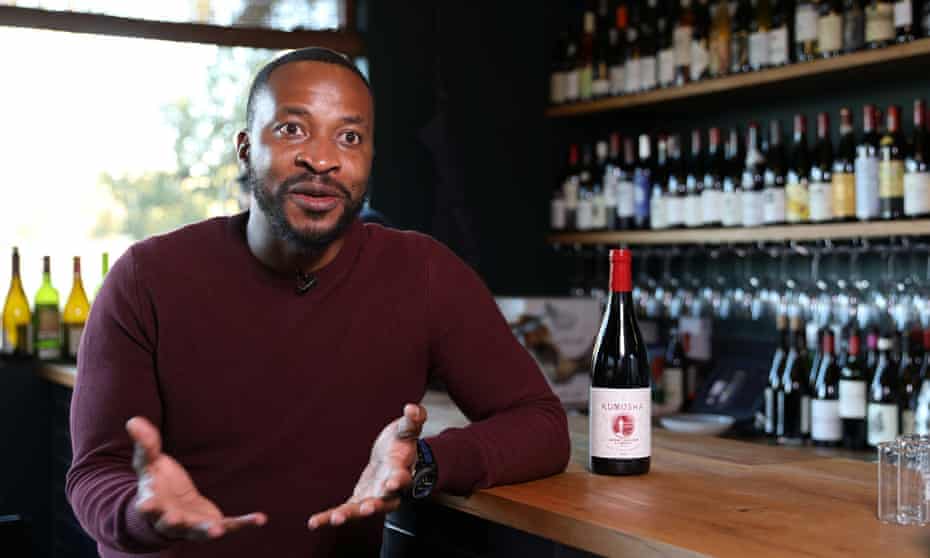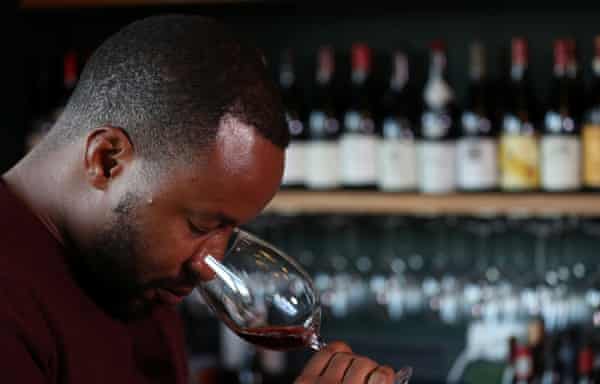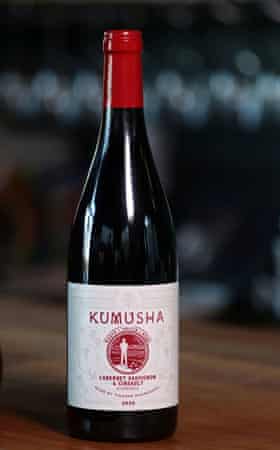After rising to the top of a white-dominated industry, a new generation of Zimbabweans are bringing their talents home

Like many young Zimbabweans before and since, Tinashe Nyamudoka left the economic chaos of his country to find work and a better life for himself in neighbouring South Africa.
When he left in 2008, Nyamudoka had never tasted wine. Now, he ranks among southern Africa’s top sommeliers and has his own wine label with international sales.
“We have a lot going against us as Zimbabweans, and you might think there is nothing good coming out of the country,” says the 36-year-old. “So, for me to be recognised as the [top] sommeliers in the world, being African and Zimbabwean, instils a sense of hope and pride.”
Nyamudoka began his career as a waiter in a Cape Town restaurant, where he learned about the different varieties and tastes of the wines his customers drank. He moved on to become a hotel wine waiter, working alongside some of the city’s leading sommeliers.
After studying his trade, he won the best wine steward award in a competition for luxury hotels in the Western Cape in 2013.

His talents received international attention when, in 2017, he and three other Zimbabwean sommeliers were selected to take part in the World Blind Tasting Championship in France. The team was the first from Zimbabwe to take part in the contest, in which competitors have to use just their palate to identify the variety of grape, country of origin, appellation, vintage and producer of the wines.
The Zimbabweans did not win – coming 23rd out of 24 teams – but their story became the subject of a documentary released last year, Blind Ambition, which Nyamudoka says brought him “a sense of pride”. The team returned to the competition the next year and this time came 14th – beating the UK and the US teams.
His wine label, Kumusha – “home” or “roots” in Zimbabwe’s Shona language – has benefited from his celebrity, producing 200,000 bottles a year, up from 1,200 when it was launched four years ago. “People started embracing it,” he says.
“I conceptualised it [the label] around 2014,” he adds. “Xenophobia was hitting home [in South Africa] and we were all missing kumusha.”
The eight Kumusha wines – three reds, four whites and a rosé – are all produced in South Africa. They are sold in the US, the Netherlands, Kenya and Zimbabwe – “my exciting market”, he says. This month, he is starting to export his wines to the UK.
“I started this brand from scratch with no aid or financial handouts. It has been pure grit, passion and dedication,” he says. “I want people to understand that you can make it without prejudice.”
But Nyamudoka says he has encountered racism on his way to the top of a white-dominated industry.
“There are instances where you get to a tasting, and it is all white [people], you kind of feel out of place. At work, you cannot get the position you want because you are black. It comes in different forms. It is not obvious, it is much more subtle,” he says.

“When I was in my last days on the floor [in a restaurant], people would recognise your talent, but they would not give you your flowers [recognition] because you are not like them. It is like you must work twice as hard to prove yourself. It is always going to be there, I suppose.”
Nyamudoka, who sits on the board of the recently established Sommeliers Association of Zimbabwe, hopes that his achievements will encourage other Zimbabweans to enter the wine industry.
“There’s been an emergence of black sommeliers in the world as the industry becomes more diverse. We see the hospitality offering in Zimbabwe improving and there will be a need for sommeliers.”
A fellow sommelier, Takura Makadzange, agrees. Also from Harare, Makdazange, 38, trained in Australia, working his way up from hotel porter to restaurant owner. Now, he is back in Zimbabwe.
“I came back home because there are plenty of opportunities. There is plenty of space in hospitality. Recently there has been more of an explosion in the food and drink sector in Zimbabwe, especially speciality wines that are being made now.
“The industry has grown, the fish industry has grown and we can have access to wildlife and game meat. Promoting the local food and beverage industry is a no-brainer. We have something that no one else does. National pride is important but also we have beautiful products,” he says.
Makadzange qualified for last month’s Ubuntu Sommelier Trophy in South Africa, but had to withdraw when he caught Covid-19.
“There are instances where a less-qualified white person is trusted with looking after the wine list over any person of colour, but you have to keep moving,” he says.
“It is very unusual for a Zimbabwean to do well in this field. We want to continue that trajectory.
“I think it’s time we have more women sommeliers from Zimbabwe so, hopefully, I will train someone to get to the standard of competing.”
COMMENTS